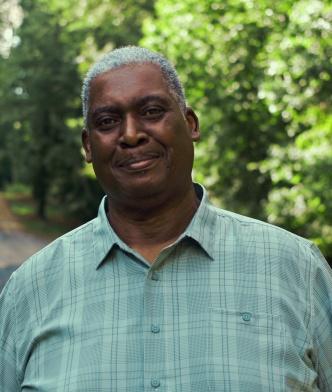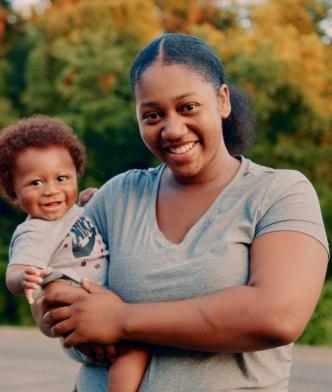Who Is Liable When a Tree Falls on a Neighbor’s Property in Florida?
Who Is Liable When a Tree Falls on a Neighbor’s Property in Florida?
Rating Overview
- The Fee Is Free Unless You Win®.
- America's Largest Injury Law Firm™
- Protecting Families Since 1988
- 20 Billion+ Won
- 1,000+ Lawyers Nationwide
Free Case Evaluation

The attorneys featured above are licensed in Florida. For a full list of attorneys in your state please visit our attorney page.
Who Is Liable When a Tree Falls on a Neighbor’s Property in Florida?
Usually, it is nice when your neighbor has trees on their property. Those trees increase the beauty of your neighborhood and may even increase your property value. However, this benefit can become a frustration if a neighboring tree falls onto your property.
This begs the question of who is liable when a tree falls on a neighbor’s property in Florida. The answer depends on the circumstances before the fall. And the answer to that question will affect how you can get compensation for any damage caused by that fall.
If a neighbor’s tree has fallen onto your property, the first thing you should do is speak to an experienced liability attorney at Morgan & Morgan. Our attorneys can quickly determine liability in your case and help you exercise your options. Contact us immediately to schedule your free case evaluation.
Tree Laws in Florida
The main factor used to determine who is liable when a tree falls on a neighbor’s property in Florida is the health of the tree. If the neighbor’s tree was healthy before it fell on your property, you are typically responsible for any costs incurred. If the tree was not healthy, the neighbor might be accountable.
A healthy tree is less likely to fall than an unhealthy one, but it can still happen. In Florida, healthy trees are most likely to fall during hurricanes or tropical storms. The tree owner is not considered responsible for this because there was no reason for them to believe the tree was at risk of falling.
However, if a tree is unhealthy, the situation changes. Property owners are required to maintain the health of their foliage, particularly if it represents a risk to neighbors. If a tree is obviously unhealthy, the owner must prune or remove it as needed to reduce the risk it poses.
If a property owner is aware that a tree is unhealthy and doesn’t take any corrective action, that individual becomes liable for any damages resulting from the tree falling.
Taking Preemptive Action
Typically, you will be able to receive compensation from your neighbor if they are liable for damage to your property caused by their tree. However, it is better if your property never gets damaged in the first place. If you have any reason to suspect that your neighbor’s trees represent a threat to your property, you can take action before damage occurs.
Formally Request Tree Maintenance
If you notice that one or more trees on your neighbor’s property look unhealthy, you should formally request your neighbor to perform tree maintenance. An attorney from Morgan and Morgan can help you send a legal document notifying your neighbor that a tree they own represents a threat to your property.
Once you have notified your neighbor, they will not be able to claim they weren’t aware of the danger if something happens. You can also use a copy of the letter you send as evidence if you eventually have to take your neighbor to trial.
With any luck, though, that won’t be necessary. Hopefully, your neighbor will correct the problem as soon as you make them aware. It is always possible that your neighbor didn’t realize that a tree was dead or unhealthy, which is why they have not taken corrective action.
Trim Encroaching Branches
If any portion of your neighbor’s trees crosses your property line, you have the right to trim the portions of the tree that are encroaching. If you choose this option, you are responsible for the cost of any trimming you perform.
You also may want to be wary about choosing this option. Cutting off a portion of a tree will probably ruin its aesthetic, which could harm your property value. It is also likely to anger your neighbor. You should probably only do this if an encroaching limb is unhealthy or directly endangering your property.
Additionally, you need to be extremely careful not to cut any portion of the tree that is on your neighbor’s property. Research the maps that show your property lines and be completely certain where your property begins before you take any action.
Have a Friendly Conversation With Your Neighbor
Even if a tree isn’t unhealthy or encroaching on your property, you may be wary about the danger it presents to your home or other structures. In this situation, you can’t force your neighbor to take action, but you may be able to convince them to do something.
If you have a good relationship with your neighbor, try having a friendly conversation about your concerns. You may be able to convince them to trim or remove a tree to protect your property. Consider offering to split the cost or even pay for the work to soften the blow to your neighbor.
While you each own your properties individually, the combined area still represents a neighborhood. It is usually in the best interests of both parties if you can come to a consensus about how the foliage is located on that land, especially near the property lines.
How it works
It's easy to get started.
The Fee Is Free™. Only pay if we win.
Results may vary depending on your particular facts and legal circumstances.
Step 1
Submit
your claimWith a free case evaluation, submitting your case is easy with Morgan & Morgan.
Step 2
We take
actionOur dedicated team gets to work investigating your claim.
Step 3
We fight
for youIf we take on the case, our team fights to get you the results you deserve.
FAQ
Get answers to commonly asked questions about our legal services and learn how we may assist you with your case.
Where to Get Compensation if Your Property Is Damaged?
If a dead or dying tree on a neighbor’s property has fallen and damaged your property, you can collect compensation from that neighbor. You will most likely get the compensation from their homeowner’s insurance policy.
To receive compensation from your neighbor, you will need to prove that the tree was unhealthy and that you either previously informed your neighbor or that they were aware. If you had prior communication about the state of the tree, hopefully, you kept evidence of that conversation.
Alternatively, even if you didn’t previously discuss the tree, you may be able to prove that your neighbor was aware the tree was unhealthy and did nothing about it. Pictures of the tree before it fell will often help your case.
Any request for compensation should go through your Morgan & Morgan lawyer. We know how to make a formal legal request. And if your neighbor refuses to provide the compensation that they are legally obligated to pay, we can promptly file a lawsuit.
However, if the tree wasn’t unhealthy, you will need to file a claim with your homeowner’s insurance policy to get compensation for any damage caused during the fall. Hopefully, this will be hassle-free. But that is never certain when dealing with an insurance company.
To best protect yourself, you should hire an attorney before filing a claim. Insurance attorneys will guide you through the claims process and will ensure that you do not make any mistakes. This will increase the chances that your claim is approved and that you get every dollar of compensation that you deserve.
Unfortunately, your insurance company might try to deny your claim, even if you are eligible for compensation. When that happens, an attorney can either negotiate for you to be treated fairly or sue the insurance company when all other options fail. But that only can happen if you have a lawyer representing you from the start.
What are Types of Compensation?
When a tree falls in the woods, nobody cares. But when a tree falls on your property, you are going to have expenses. At a bare minimum, somebody will have to pay for the cost of clearing the tree. But the costs might be a bit higher. Other costs you may incur after a tree collapses are the following:
- Damage to a fence, shed, or building
- Injuries to a person or pet struck by the tree
- Damage to a vehicle
- Cost to replace or remove other trees damaged by the falling tree
- Landscaping costs to repair your yard
- Hotel costs if your home is temporarily unlivable
These costs can be very high if a person is injured or if your home is damaged. When your expenses start to get into the thousands of dollars, you can’t afford to miss out on any compensation. Speak to an experienced lawyer immediately.
Can I Receive Compensation if a Neighbor’s Tree Drops Fruit, Flowers, Seeds, or Leaves on My Property?
Unfortunately, while this type of detritus can litter your property or even cause minor damage, your neighbor is not responsible for these droppings. You might be able to claim on your homeowner’s insurance policy, though. Ask an attorney what your options are.
The best way to deal with this type of problem is to be proactive. You might need to build a fence or negotiate a solution with your neighbor. A little bit of foresight can prevent high future costs that may not be eligible for compensation.
What Should I Do if My Neighbor Cuts Down a Tree on My Property?
As previously noted, your neighbor has the right to trim your tree if it encroaches on their property. But if your tree isn’t encroaching, your neighbor has no right to damage your tree.
If a neighbor cuts down a tree that belongs to you, they owe you compensation for the damage, replacement costs, and any harm to your property value. Unless they did it accidentally, you would probably have to sue them to get compensation.
Can I Force a Neighbor to Remove a Dead Tree?
While you can inform a neighbor that a dead tree should be removed, you typically can’t force them to remove it. However, there are exceptions to this rule.
For example, if you live in a neighborhood with an HOA, you may be able to file a complaint with the board. And the board does have the power to force your neighbor to take action.
Similarly, you might be able to file a complaint with the local government. Many towns have rules requiring homeowners to maintain their property's foliage. If your neighbor is violating those rules, they may be subject to fines.
Just remember, if your neighbor refuses to take corrective action in a reasonable amount of time after being notified, they are completely liable for any damage caused by the unhealthy tree. So notifying them and recording that communication is important even if they do not act on it.
Who Is Liable When a Tree Falls on a Neighbor’s Property in Florida?
If a neighbor’s tree has fallen and damaged your property, you should speak to an experienced lawyer who can answer this question and help you take the right steps. The attorneys at Morgan and Morgan discover who is liable and provide you with options.
Contact us today to schedule a free case evaluation.






